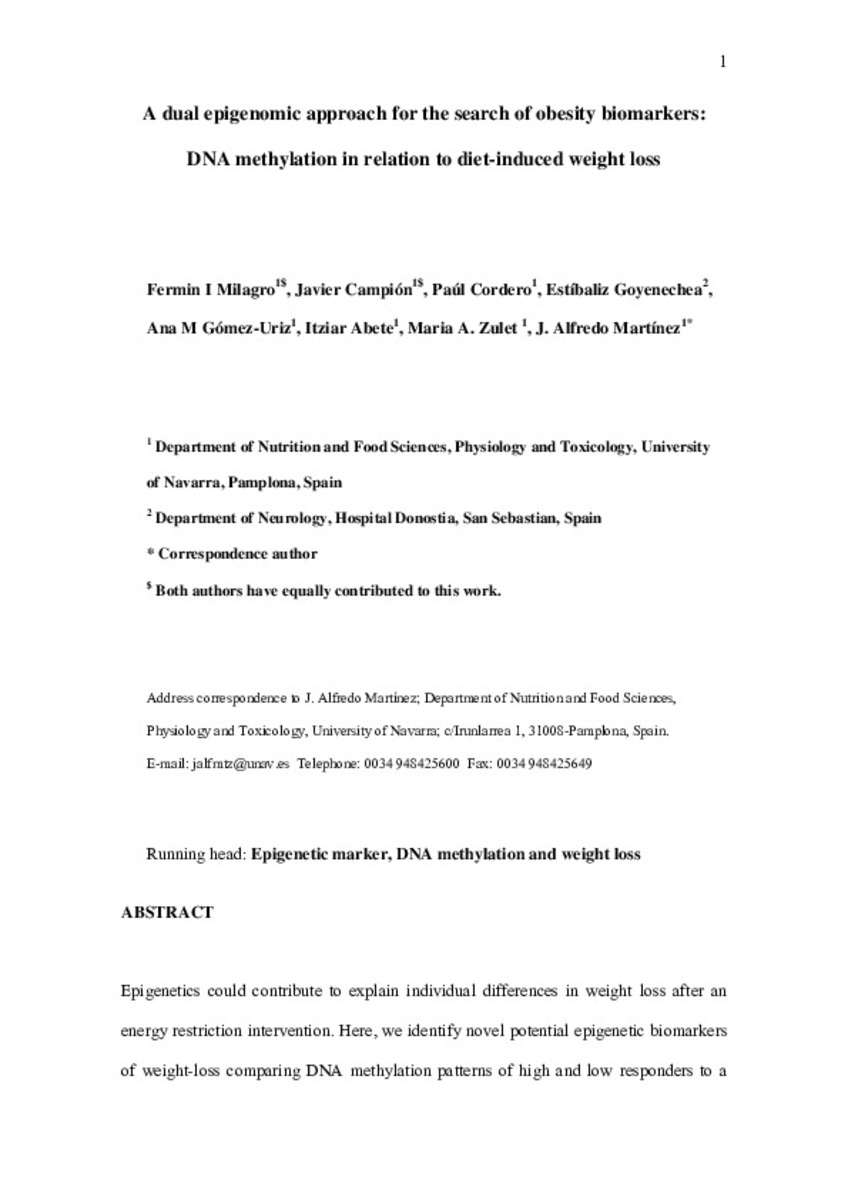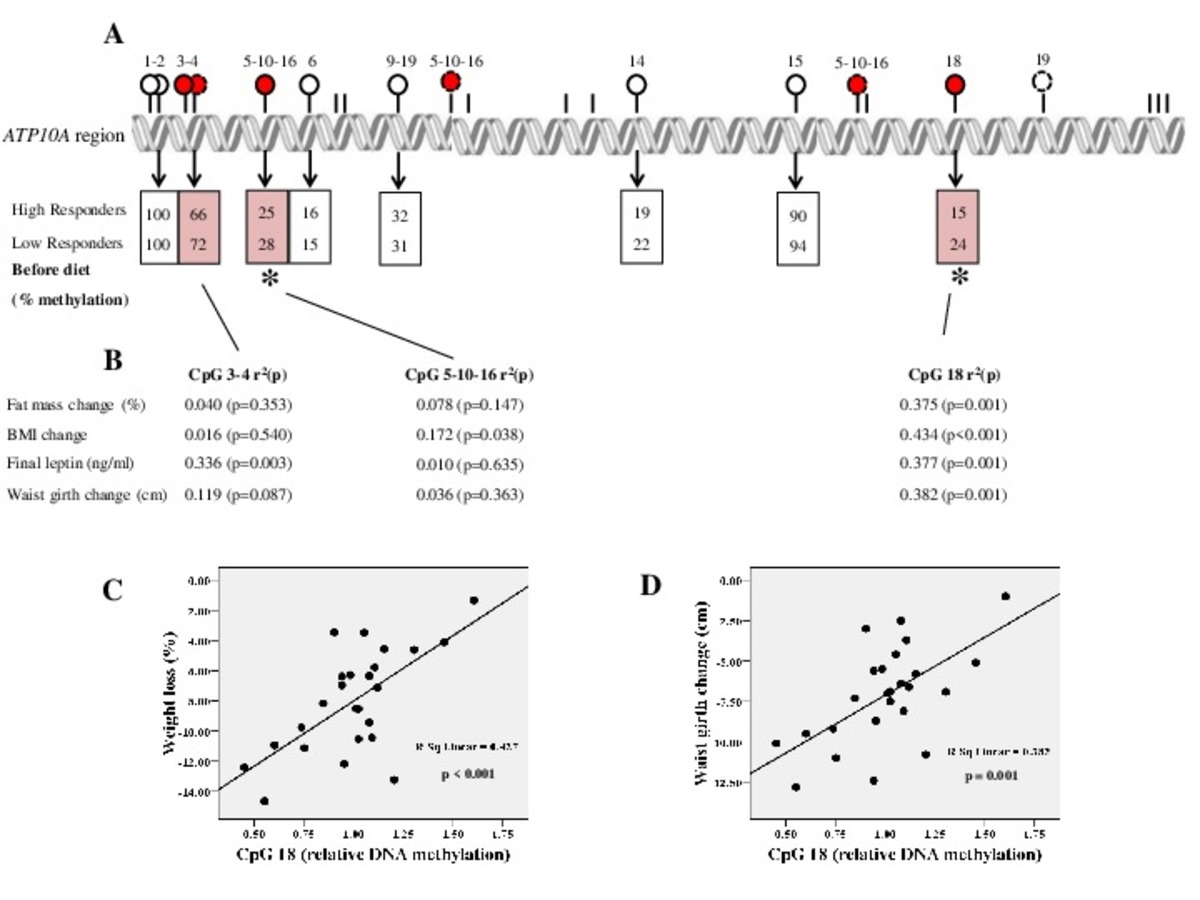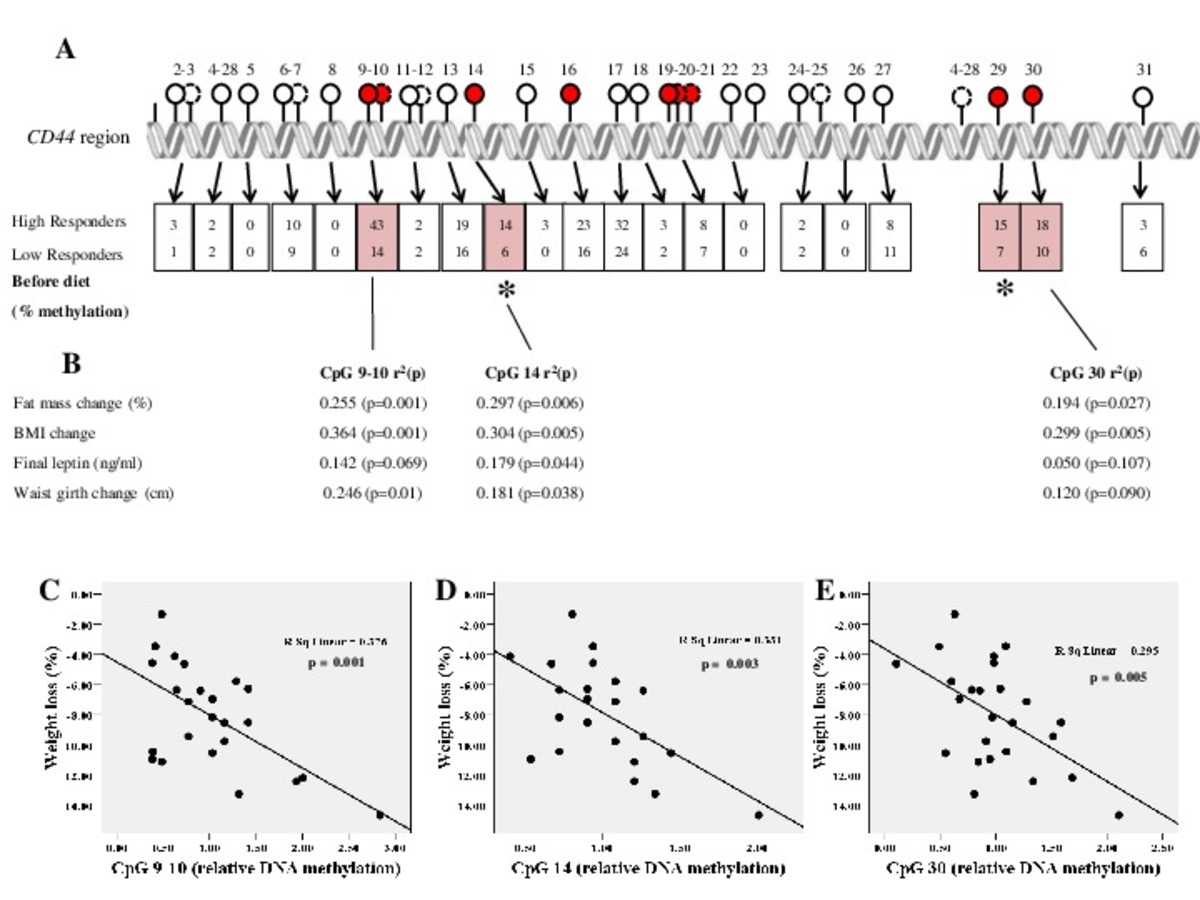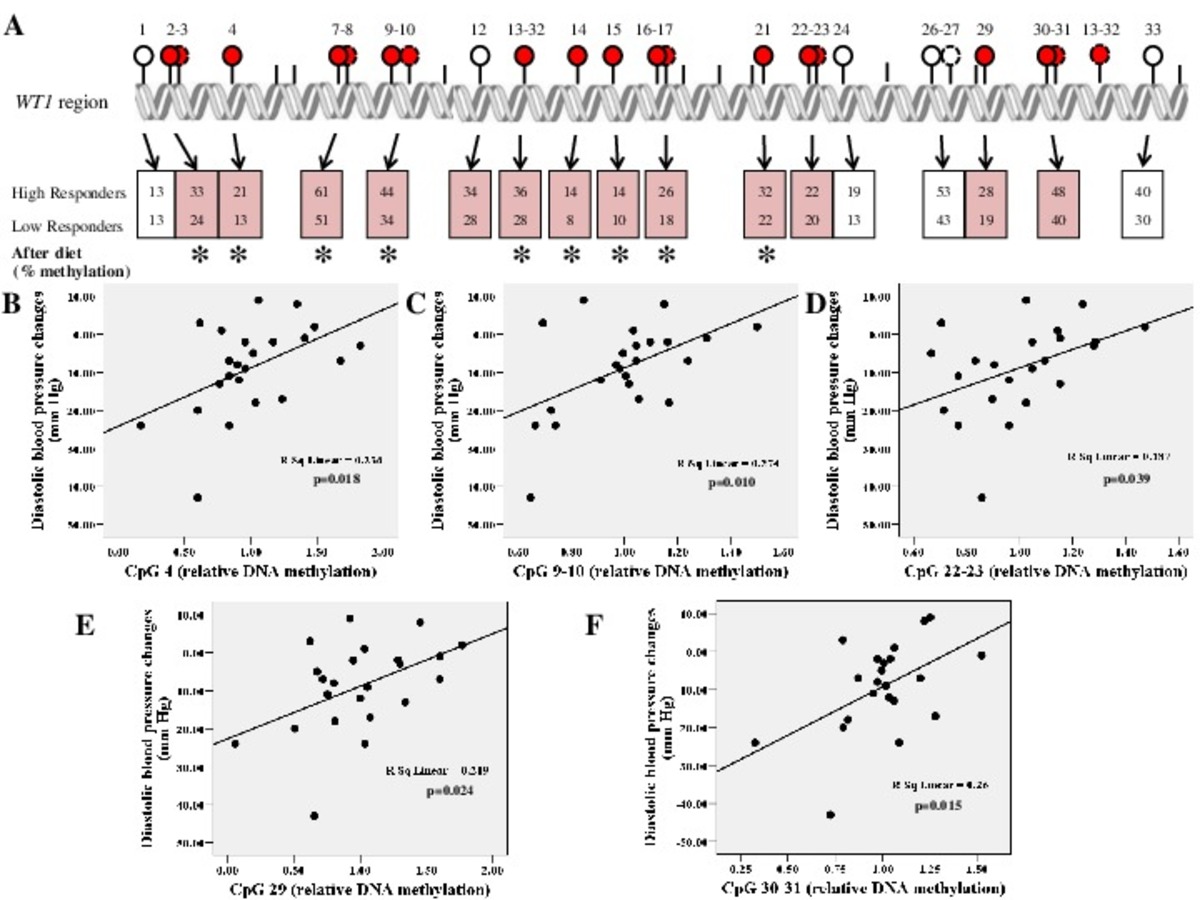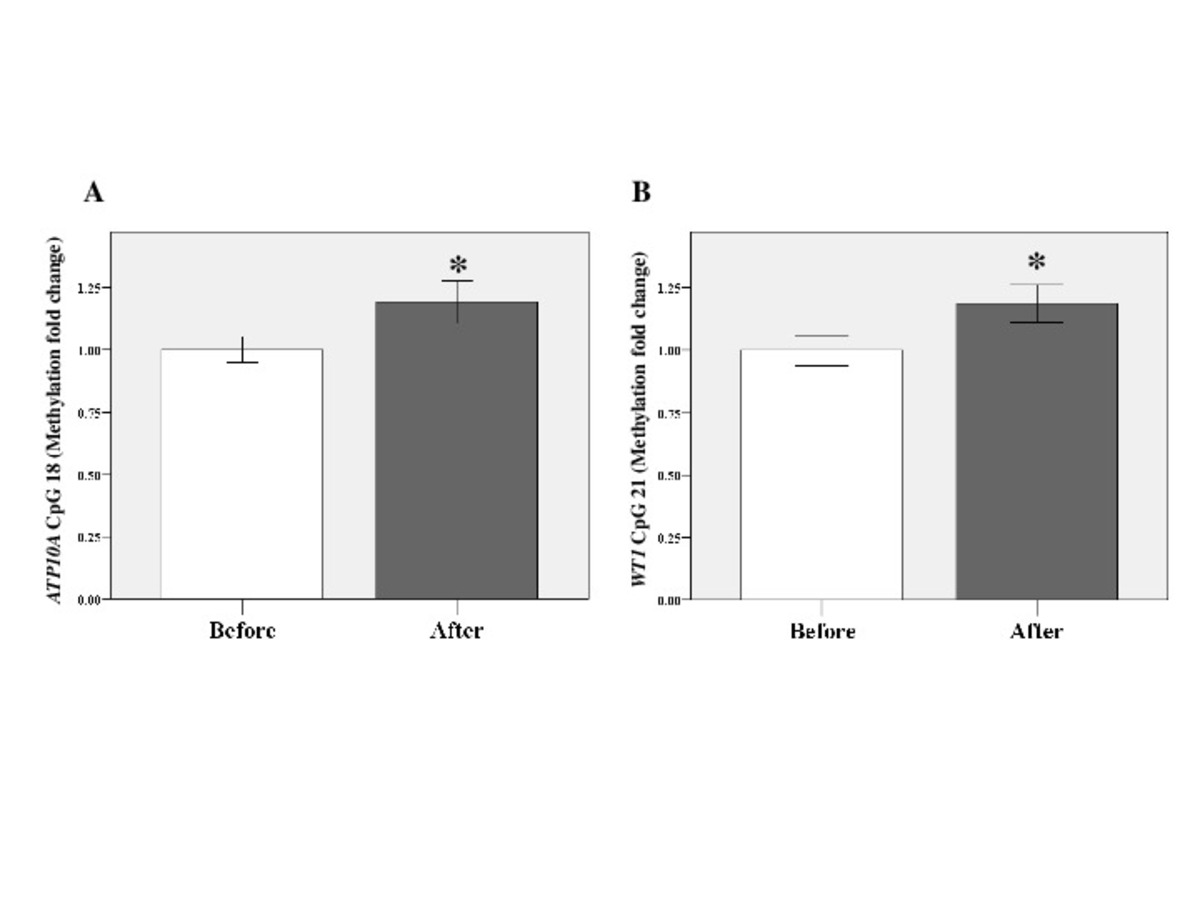Full metadata record
| DC Field | Value | Language |
|---|---|---|
| dc.creator | Milagro-Yoldi, F.I. (Fermín Ignacio) | - |
| dc.creator | Campión-Zabalza, J. (Javier) | - |
| dc.creator | Cordero, P. (Paul) | - |
| dc.creator | Goyenechea, E. (Estíbaliz) | - |
| dc.creator | Gomez-Uriz, A.M. (Ana María) | - |
| dc.creator | Abete, I. (Itziar) | - |
| dc.creator | Zulet, M.A. (María Ángeles) | - |
| dc.creator | Martinez, J.A. (José Alfredo) | - |
| dc.date.accessioned | 2013-04-18T09:00:49Z | - |
| dc.date.available | 2013-04-18T09:00:49Z | - |
| dc.date.issued | 2011 | - |
| dc.identifier.citation | Milagro FI, Campion J, Cordero P, Goyenechea E, Gomez-Uriz AM, Abete I, et al. A dual epigenomic approach for the search of obesity biomarkers: DNA methylation in relation to diet-induced weight loss. FASEB J 2011 APR;25(4):1378-1389 | es_ES |
| dc.identifier.issn | 0892-6638 | - |
| dc.identifier.uri | https://hdl.handle.net/10171/28316 | - |
| dc.description.abstract | Epigenetics could help to explain individual differences in weight loss after an energy-restriction intervention. Here, we identify novel potential epigenetic biomarkers of weight loss, comparing DNA methylation patterns of high and low responders to a hypocaloric diet. Twenty-five overweight or obese men participated in an 8-wk caloric restriction intervention. DNA was isolated from peripheral blood mononuclear cells and treated with bisulfite. The basal and endpoint epigenetic differences between high and low responders were analyzed by methylation microarray, which was also useful in comparing epigenetic changes due to the nutrition intervention. Subsequently, MALDI-TOF mass spectrometry was used to validate several relevant CpGs and the surrounding regions. DNA methylation levels in several CpGs located in the ATP10A and CD44 genes showed statistical baseline differences depending on the weight-loss outcome. At the treatment endpoint, DNA methylation levels of several CpGs on the WT1 promoter were statistically more methylated in the high than in the low responders. Finally, different CpG sites from WT1 and ATP10A were significantly modified as a result of the intervention. In summary, hypocaloric-diet-induced weight loss in humans could alter DNA methylation status of specific genes. Moreover, baseline DNA methylation patterns may be used as epigenetic markers that could help to predict weight loss. | es_ES |
| dc.language.iso | eng | es_ES |
| dc.publisher | Federation of American Society of Experimental Biology | es_ES |
| dc.rights | info:eu-repo/semantics/openAccess | es_ES |
| dc.subject | ATP10A | es_ES |
| dc.subject | WT1 | es_ES |
| dc.subject | PBMC | es_ES |
| dc.subject | Microarray | es_ES |
| dc.subject | CD44 | es_ES |
| dc.title | A dual epigenomic approach for the search of obesity biomarkers: DNA methylation in relation to diet-induced weight loss | es_ES |
| dc.type | info:eu-repo/semantics/article | es_ES |
| dc.type.driver | info:eu-repo/semantics/article | es_ES |
| dc.identifier.doi | http://dx.doi.org/10.1096/fj.10-170365 | es_ES |
Statistics and impact
Items in Dadun are protected by copyright, with all rights reserved, unless otherwise indicated.


